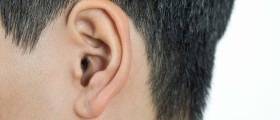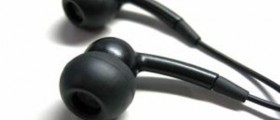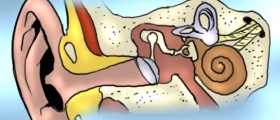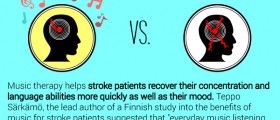
Tinnitus stands for the noise heard inside the ear or head. Thus, this phenomenon might manifest through hissing, ringing, swishing or other such sounds, bothering a person quite severely in certain situations. Usually, however, tinnitus disappears over a short while. Nevertheless, sometimes, this condition remains prevalent and makes one's life hard, being a serious health problem, triggered by an underlying illness. About 36 million Americans suffer from tinnitus and, in a vast majority of cases, solely the sufferer can hear the bothering noise.
Triggers of Tinnitus
Tinnitus may affect different parts of the human ear. Basically, it may appear in the inner, outer or the middle ear. Nevertheless, it may also take place due to certain abnormalities affecting the brain. Many people hears noises which do not come from the outside. Usually, these sounds get overpowered by all the external noise we get exposed to daily. So, once a person enters a soundproof room, he/she can clearly hear the noise or the sounds which present tinnitus.
These sounds may stem from excessive accumulation of ear wax or a presence of a foreign object blocking the ear passages. Also, the presence of fluid in the ear, infections or diseases affecting the three tiny bones or the eardrum, all may lead to tinnitus.
Yet, in the majority of cases, tinnitus is more related to the brain, due to damage of the tiny nervous endings of the hearing nerve located in the inner ear. This state of affairs usually takes place with the age of the patient, since older people are more prone to gradual hearing loss and appearance of tinnitus.
Finally, certain medications, exposure to loud noise such as the portable music player with earphones, construction works, explosives or firearms trigger, may lead to appearance of tinnitus as well.
Treatment for Tinnitus
If tinnitus does not go away on its own, your doctor might need to examine you and recommend adequate treatment, most commonly consisting of medications. Several drugs have been used for treating tinnitus, but they have either shown poor results or have not been capable of dealing with this problem in all patients, presenting something like the placebo.
Quitting smoking, reducing caffeine consumption and decreasing your salt intake are all factors known to help in tinnitus treatment. Zinc supplements may help too, along with melatonin, ginkgo biloba or sound therapies.
Ultimately, you can prevent tinnitus from affecting you. Do not expose yourself to loud sounds, protect your hearing in such situations and pay attention to the health and hygiene of your ears.

















Your thoughts on this
Loading...